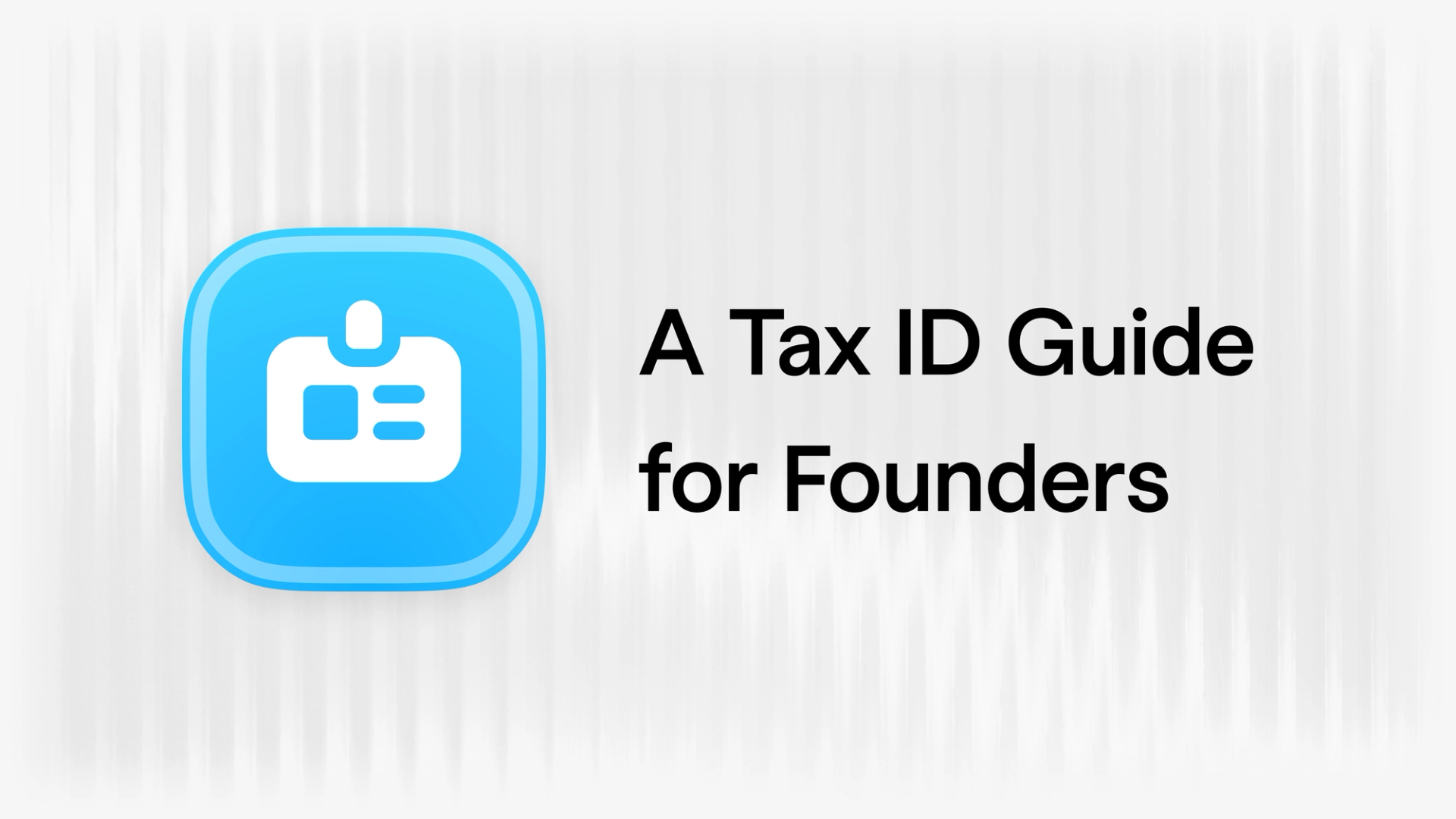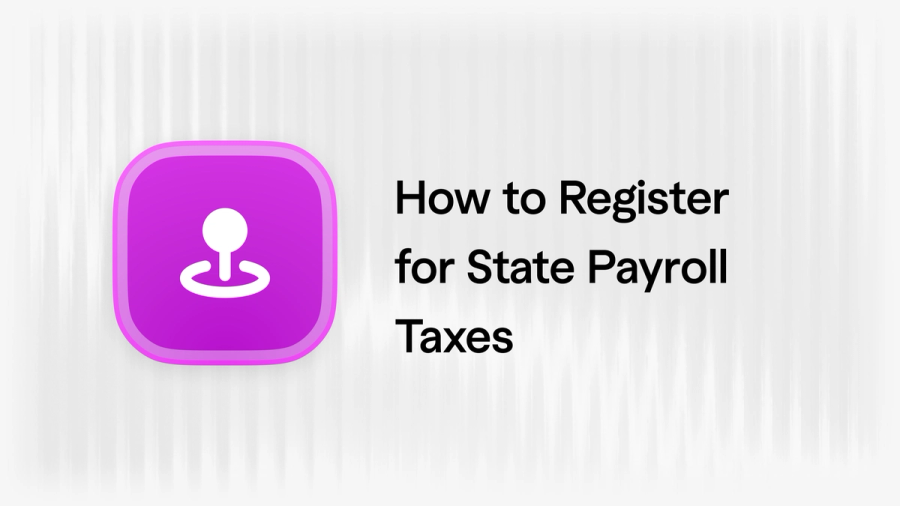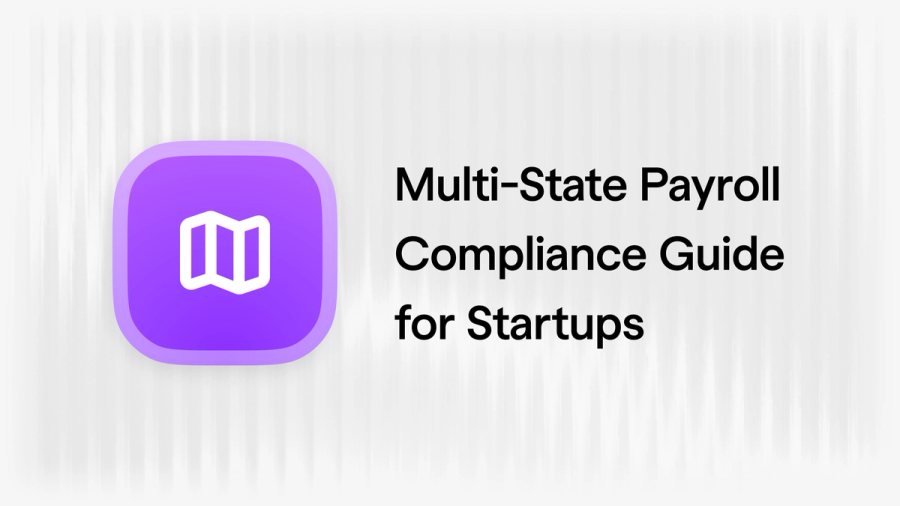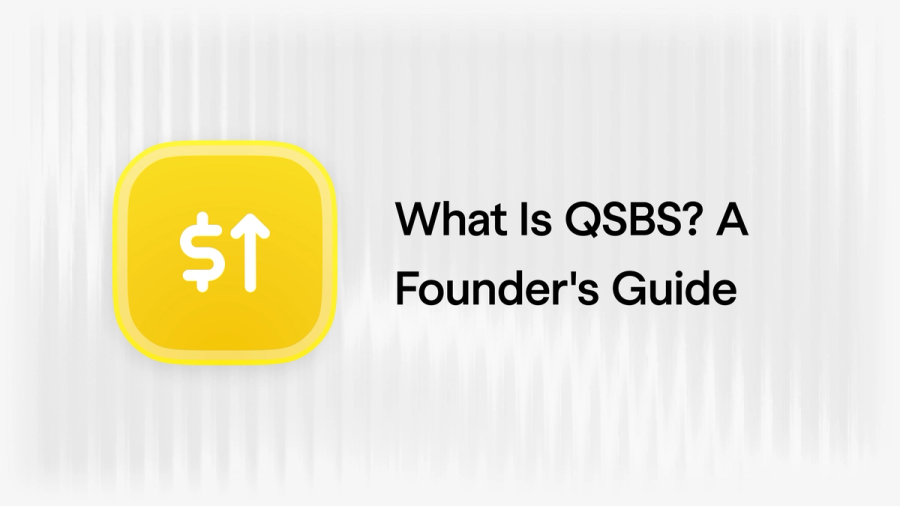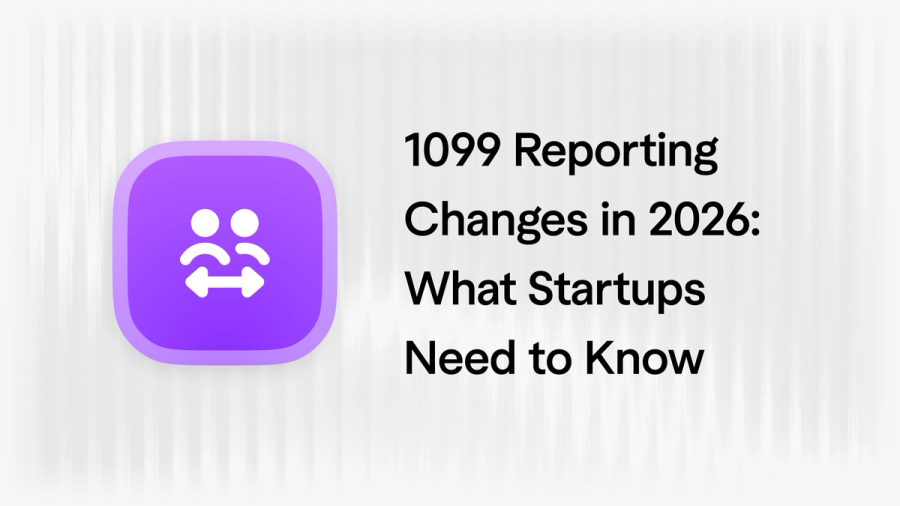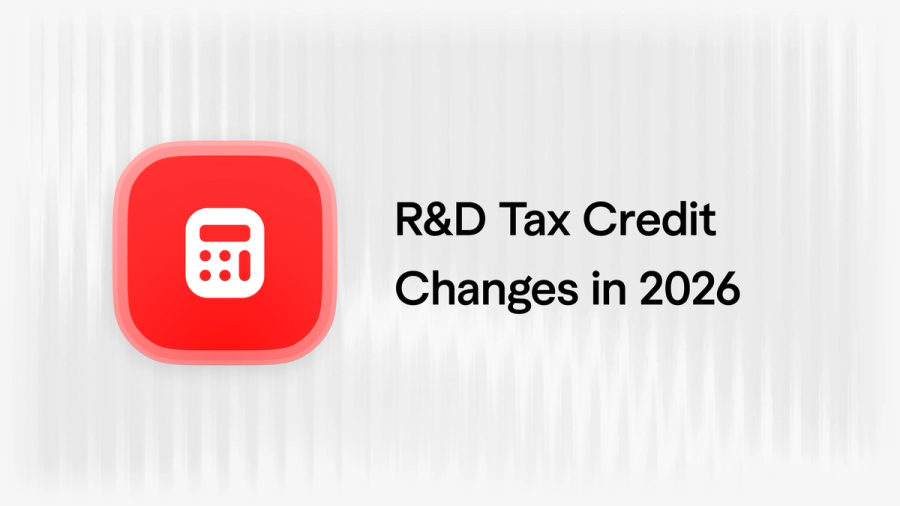The three US tax identification numbers serve distinct purposes, and understanding which (and when) you need can save weeks of delays. For startup founders, the EIN (Employer Identification Number) is your business's tax identity and can be obtained immediately online if you have an SSN, or within 4 business days by fax even without one.
Non-US citizen founders can legally form a Delaware company and obtain an EIN without ever having an SSN or ITIN, which is a critical fact that many guides overlook. The optimal sequence for nearly all founders is: incorporate first, then EIN, then bank account, then state registrations.
This guide covers current 2025-2026 requirements, regulatory changes including the elimination of FinCEN BOI reporting for domestic companies, visa-specific guidance for international founders, and practical sequencing to avoid the most common first-time founder mistakes.
Understanding the three tax identification numbers
The US tax system uses three primary identification numbers, each issued by different agencies for different purposes.
An SSN (Social Security Number) is issued by the Social Security Administration exclusively to US citizens and work-authorized noncitizens. It's your personal tax identifier and authorizes employment.
An ITIN (Individual Taxpayer Identification Number) is issued by the IRS to individuals who have US tax filing obligations but are not eligible for an SSN and, more crucially, it does not authorize work.
An EIN (Employer Identification Number) is your company's tax identifier, required for hiring employees, opening business bank accounts, and filing business taxes.
Which tax ID you need for each business purpose
Different startup activities require different identification numbers, and confusing them can create significant delays.
| Business Activity | Required Tax ID | Notes |
|---|---|---|
| Opening business bank account | EIN | SSN of 25%+ owners also typically required |
| Hiring W-2 employees | EIN | Plus state employer IDs where employees work |
| Filing business taxes | EIN | For LLCs, corporations, partnerships |
| Receiving payments as contractor | SSN or ITIN | Report on personal return |
| Issuing 1099s to contractors | EIN | Must have EIN to be a paying entity |
| Cap table/equity issuance | EIN | Shareholders need SSN or ITIN |
| 83(b) election filing | SSN or ITIN | Personal tax election for restricted stock |
| Filing personal tax return | SSN or ITIN | ITINs for those ineligible for SSN |
The company itself needs an EIN, while you as an individual founder need either an SSN (if work-authorized) or ITIN (if not). Many founders need both an EIN for their company and an SSN/ITIN for their personal tax filings and equity records.
Guidance for non-US citizen founders by visa type
Your immigration status determines whether you qualify for an SSN, which in turn affects your application process and timeline.
Work-authorized visas qualify for SSN
H-1B visa holders are immediately eligible for an SSN upon work authorization. Under 2024 DHS rules, startup founders can self-sponsor H-1B through their own company if they establish an employer-employee relationship (board of directors recommended) and can pay prevailing wage.
O-1 visa holders (extraordinary ability) have the most favorable status for founders with no wage requirement, no annual cap, unlimited extensions, and self-sponsorship through an agent is permitted. Apply for SSN at any Social Security office with your passport, I-94, and O-1 approval notice.
E-2 treaty investors receive work authorization incident to status and can apply for SSN immediately upon US entry. Notably, E-2 spouses are also work-authorized and SSN-eligible, though children are not.
L-1 visa holders (intracompany transferees) are automatically SSN-eligible, as are L-2 spouses since January 2022.
F-1 students on OPT can obtain SSNs but only with authorized employment. Self-employment on OPT is permitted if the business relates to your field of study, but STEM OPT extension cannot be used with a sole proprietorship (you cannot be your own employer), and CPT does not allow self-employment.
Non-work-authorized visas require ITIN
B-1/B-2 visitors are not eligible for SSN and must use ITIN for any US tax filing obligations. Critically, B-1/B-2 holders can legally incorporate a US company and obtain an EIN but cannot work for that company or draw salary. This creates a viable path for international founders to establish their US entity while pursuing an appropriate visa.
For non-work-authorized founders, the optimal sequence is: form your business entity, apply for EIN by fax (writing "Foreign" where SSN/ITIN is requested), then apply for ITIN when you have a US tax filing obligation.
Common mistakes international founders make
The most frequent error is applying for ITIN when eligible for SSN. You should always apply for SSN first if you have work authorization. Other common mistakes include submitting expired documents, name mismatches between documents, using photocopies instead of originals, and applying for EIN before incorporating the business entity.
For EIN applications, listing a company as responsible party (must be an individual), using incorrect SSN/ITIN format, and omitting return fax numbers all cause delays. Non-US founders should use a US registered agent address and ensure Form SS-4 is signed by the responsible party.
What to do if you’re a first-time founder
The optimal sequence for all founders is:
- Incorporate your entity with the state (Delaware most common, 1-2 business days)
- Apply for EIN (instant online with SSN, or 4+ days by fax without)
- File 83(b) election within 30 days of receiving restricted stock
- Open business bank account (1-2 days once EIN received)
- Register for state tax IDs when ready to hire employees
Attempting to get an EIN before incorporation will fail because the IRS requires your entity to exist first. Similarly, most banks require EIN documentation before opening business accounts.
Bank account requirements vary by institution
Most startup-friendly banks require your company's EIN plus personal identification from beneficial owners. Mercury requires Articles of Incorporation, IRS-issued EIN document, government ID for each 25%+ owner, and a physical business address (not PO Box or registered agent). Brex requires VC funding or $1M+ revenue or $500K+ cash balance to qualify. Traditional banks like Chase often require in-person branch visits.
For non-US founders, Mercury and similar fintechs accept applications with EIN and passport, making them the primary banking option for international entrepreneurs. Expect 1-2 weeks for account approval after EIN receipt if applying from outside the US.
Payroll requires EIN plus state registrations
Before running payroll, you need your federal EIN plus state employer identification numbers in every state where employees work. State registrations typically take 1-12 weeks depending on jurisdiction. Payroll providers like Warp, Gusto, and Rippling can assist with state registrations through their onboarding process.
For 1099 contractors, collect Form W-9 before any payment. If a contractor doesn't provide a W-9, you must withhold 24% backup withholding. International contractors require Form W-8BEN and may be subject to 30% withholding unless a tax treaty applies.
The 83(b) election deadline is absolute
Perhaps the most critical deadline for founders receiving restricted stock is the 83(b) election, which must be filed within 30 days of your stock grant. No extensions are permitted. This election lets you pay taxes at grant (when shares are worth pennies) rather than at vesting (when they may be worth dollars). Missing this deadline can result in massive unexpected tax bills years later.
The election requires your SSN or ITIN and your company's EIN. Starting July 2025, the IRS accepts electronic filing, though certified mail remains the traditional approach.
Delaware franchise tax and ongoing compliance
Delaware corporations must file an annual report and pay franchise tax by March 1 each year. Using the Assumed Par Value method, most startups pay the $400 minimum plus a $50 filing fee. The default Authorized Shares method can produce shockingly high calculated taxes for companies with many authorized shares. Make sure you always calculate both methods and pay the lower amount. Late filing incurs a $200 penalty plus 1.5% monthly interest.
Delaware LLCs and LPs pay a flat $300 annual tax due June 1, with no annual report required. The late penalty structure mirrors corporations.
Several states have decoupled from OBBBA provisions due to revenue concerns, including California, Rhode Island, Michigan, Pennsylvania, and Delaware itself. This creates compliance complexity for startups operating in multiple states where state tax treatment may differ significantly from federal treatment for provisions like R&D expensing and bonus depreciation.
Need help with payroll setup after you've got your EIN? Warp automates multi-state compliance and state tax registrations for venture-backed startups, so you can focus on building your company instead of navigating tax bureaucracy.
Frequently asked questions
Can I get an EIN without an SSN or ITIN? Yes. Non-US founders can apply for an EIN by faxing or mailing Form SS-4 with "Foreign" entered on line 7b. Fax processing takes approximately 4 business days. You do not need an SSN or ITIN to obtain an EIN for your business.
What's the difference between SSN and ITIN? An SSN is issued to US citizens and work-authorized noncitizens—it both identifies you for tax purposes and authorizes employment. An ITIN is issued to individuals with US tax obligations who are not eligible for an SSN—it is only for tax purposes and does not authorize work.
How long does it take to get each tax ID? SSNs take approximately 14 days after applying in person. ITINs take 7-11 weeks standard (up to 15 weeks during tax season). EINs are instant online with SSN/ITIN, 4 business days by fax, or 4-8 weeks by mail.
Do I need an EIN if I'm a sole proprietor with no employees? Not always—you can use your SSN for tax purposes. However, getting an EIN is recommended to avoid giving out your SSN on W-9 forms and invoices, and you'll need one if you ever hire employees or open a business bank account.
Can I incorporate a US company on a tourist visa? Yes. B-1/B-2 visitors can legally form and own US companies. However, you cannot work for or draw salary from that company without work authorization. Many international founders incorporate and obtain EINs while on tourist visas, then pursue appropriate work visas to actively operate the business.
What happens if I miss the 83(b) election deadline? There is no remedy. The 30-day deadline from stock grant is absolute—no extensions, no exceptions. Missing it means you'll pay taxes on your stock at vesting (when it may be worth significantly more) rather than at grant. This can result in substantial unexpected tax liability.
